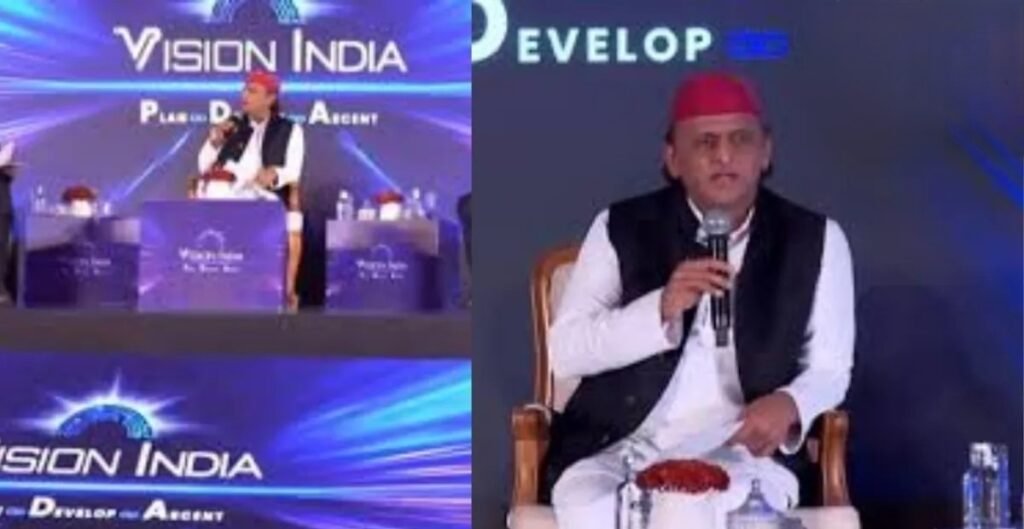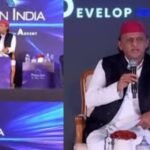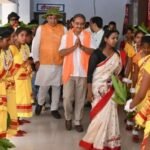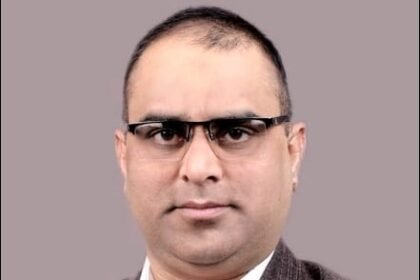
BY MOHAMMAD TARIQUE SALEEM
At a high-profile conference in Bengaluru titled “Vision India”, Samajwadi Party (SP) chief and Lok Sabha MP Akhilesh Yadav launched a powerful critique of the Bharatiya Janata Party (BJP) and the National Democratic Alliance (NDA), raising serious questions about the transparency of recent electoral processes in India, particularly the Bihar Assembly results. The event, attended by senior party leaders, intellectuals, youth representatives and supporters, became a platform for Akhilesh to outline the SP’s roadmap for a more inclusive, democratic, and employment-driven India while simultaneously exposing what he called the “systematic erosion of electoral fairness” under the BJP-led government.

In his opening remarks, Akhilesh Yadav said that India today needs a vision rooted in equality, justice, and opportunities, not in propaganda and divisive politics. “The soul of democracy is public trust,” he said. “When institutions weaken and people lose faith in elections, the nation faces a grave danger.” But the sharpest moments of the conference came when Akhilesh addressed the recent election results in Bihar, where the NDA recorded a surprisingly high strike rate. He openly admitted that he was unable to “digest” the numbers.
“This result, of double century, I am not able to digest. We are not able to accept it. How can those large numbers of seats be won? How can the strike rate be so high?” he asked, raising eyebrows and drawing loud applause from the audience in Bengaluru. Akhilesh accused the BJP of perfecting the art of selective contesting and hinted that opposition parties must also learn from their strategic seat management. “What we learn from BJP, we will implement the same in return,” he remarked, signalling a more aggressive and analytical electoral approach by the Samajwadi Party in the future.
However, his strongest criticism was directed toward the Election Commission (EC). He alleged that the Commission had failed to uphold its constitutional responsibility of ensuring free and fair elections. According to him, the EC “abandoned its duty” by overseeing revision of voter lists only in booths where BJP was performing poorly, suggesting manipulation of the electorate base. “Why is the EC not saying that they won’t let anyone lose their vote?” Akhilesh questioned, urging the Commission to clarify its stand on fairness and transparency.
He added that ensuring every citizen’s right to vote was not a favour but a fundamental responsibility of the Election Commission. Going a step further, Akhilesh alleged that the BJP had developed extraordinary means to influence electoral documents. BJP was able to create Aadhaar cards and voter IDs in half an hour, he claimed, hinting at misuse of administrative machinery and digital infrastructure. The statement stirred discussion in the hall, with several party leaders nodding in agreement.
Touching upon the larger issue of “vote chori”, Akhilesh stressed that what was happening was no longer mere theft but something far more dangerous. This is not chori (theft). This is dacoity,” he said firmly. He reminded the gathering that during bypolls in Uttar Pradesh, thousands of genuine voters were reportedly prevented from casting their votes, often by pressure from police or administrative officials. This is not an allegation. This is the truth,” he declared. Beyond electoral criticism, the conference also focused on the Samajwadi Party’s Vision India, a future where economic growth is paired with social justice. Akhilesh highlighted the party’s priorities:
- Real job creation, not headline-based schemes that fail to reach youth
- Strengthening federalism, ensuring states’ rights are protected
- Affordable healthcare and universal education
- Protection of democratic institutions from political interference
- Empowerment of farmers, workers, and the middle class
He argued that the BJP government has failed to address the real issues of unemployment, inflation, and rural distress. “Schemes come and go, but jobs do not. Youth are being misled with announcements, not opportunities,” he said. Towards the end of the conference, Akhilesh called for unity among opposition parties, stressing that the battle for India’s democracy required collective strength. “India needs hope, not fear. India needs progress, not propaganda. And India needs elections that people can trust,” he concluded. The Bengaluru conference thus became not just a political gathering but a call to defend democracy, a demand for electoral reforms, and a roadmap for a more progressive and socially just India.










